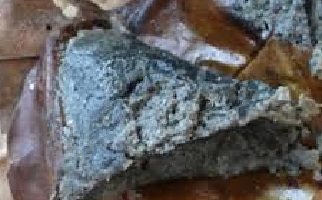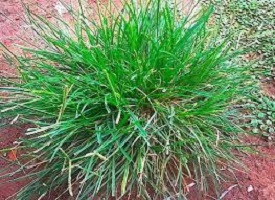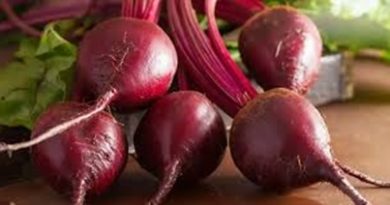Ogiri Isi African Soup: Iru/Dawadawa/Okpei Flavor Enhancers
Ogiri Isi African Soup is one of the most common local flavor enhancers in Nigeria produced from legumes and oil seed that is used mostly while preparing Nigerian soup and stews.
Locust bean, popularly referred to as iru by Yorubas, ogiri, by Igbos, also known as dawadawa in Hausa land and by different names among the ethnic groups in Nigeria, is a local seasoning or condiment used in soups and stews.

Ogiri in English
A very common global soup ingredient, it is also named African locust bean with the botanical name as Parkia biglobosa.
Importance of Ogiri (Ogiri Isi African Soup)
- Ogiri is one ingredient in soups you can’t miss the smell even if you were miles away. With its exceptionally “funky” aroma, it’s certain to keep you on your toes while cooking.
- It is integrated in Nigerian soups like egusi soup, onugbu soup, oha/ora soup, utazi soup to enhance the local taste etc.
- In Eastern Nigeria, it is a vital ingredient in the preparation of African salad popularly called Abacha
Ogiri is gotten by fermenting melon seeds (Citrullus vulgaris), fluted pumpkin (Telferia occidentallis) and castor oil seeds (Ricimus communis).
These raw materials are used to create the different variations of ogiri such Ogiri-egusi, ogiri – ugu, ogiri – isi and ogiri – okpei.
We also have Ogiri-Ijebu, Ogiri-Igbo and Ogiri-Nwan. The names are derived from the region of origin.
The Role of Ogiri (Ogiri Isi African Soup) as Soup Spice
Ogiri not only serves as a nutritious non-meat protein alternative but also as a condiment and flavoring agent in soups and sauces.
It has very good uses as a protein supplement and as a functional ingredient.
Ogiri (Ogiri Isi African Soup) Preparation
Ogiri Igbo
- Firstly, to prepare ogiri, melon seeds are boiled to remove the seed coat and mashed.
- Secondly, the mashed melon seeds are then wrapped tightly in banana leaves and left to ferment for five to seven days.
- Then, the fermented mashed melon is placed in an earthen pot and covered with jute bags which provide low oxygen tension.
- After that, the fermenting mashed melon is then wrapped in leaves, placed on a wire mesh, smoked over charcoal heat for like two hours, and pulverized before it can be used in cooking.
Ogiri can also be made from castor oil (Ricinus communis) seeds.
This fermentation process is known to improve the tastiness, protein content, and mineral levels.
How to Make Dawadawa (Hausa)
- Firstly, sort the locust beans to remove any foreign particles. Soak the locust beans in hot water and leave for seven days or boiled for about 8 hours to de-hull.
- Secondly, place the seeds in a mortar and pound with a pestle to de-hull. Sieve off the chaff.
- Thirdly, the cleaned seeds are then steamed and spread inside a calabash whose inside had previously been rubbed with wood ash and covered in leaves.
- The calabash is then, covered and wrapped with clothes or sack for about 24 to 36 hours for fermentation to take place.
- Lastly, Dawadawa is then pressed into cakes in form of discs. This can now be used as a condiment for soups or stews. Dawadawa is rich in protein, vitamins, and nutrients.
Ogiri Okpei
All the Ogiri types must be fermented and mashed and Ogiri okpei is no exception. It is mostly used by the Igbos
Especially for you >>> Flavor Enhancer: Ogiri Okpei Nigerian Seasoning Flavor
How to Make Ogiri Okpei
- Firstly, the seeds are first sorted, washed, and cleaned thoroughly in clean water. Remember that you can use egusi seeds, fluted pumpkin, Prosopis africana (Mesquite seeds), castor oil seeds, or sesame seeds.
- Secondly, cook the seeds until they get softened so that the seeds coverings can easily peel off for easy removal. Then, wash the cotyledons and pour them in a sieve to drain excess water.
- Thirdly, add the cotyledons into a canister or vessel then cover with local leaves like plantain leaves, etc. and allow staying for at least 4 days to undergo fermentation.
- Lastly, as soon as the fermentation process is complete, ground the fermented seeds into a smooth thick paste, then mold into small balls and allow drying under the sun.
Immediately the ogiri okpei is sun-dried, it is then ready for usage.
How to Make Iru
Iru is a food flavoring condiment prepared by fermenting the whole soybean. Locus beans have been the traditional raw material for the production of iru (dadawa).
Iru enhances the good taste and also serve as a low-lost protein source in the diet of low-income families
Healthy Benefits of Locust Bean (Iru)
Locust bean, commonly referred to as iru by Yorubas, ‘ogiri’, ‘dawa dawa’ by Igbos, is a local seasoning or condiment used in soups and stews.
- The fermented locust bean seed is used in controlling diabetes and cholesterol levels.
- It helps to promote good sight and aids digestion. Also, for treating hypertension and stroke
- The water and alcoholic gotten from fermented locust bean can be used to reduce blood sugar.
- It is used in managing bacterial infections and is recommended for the treatment of diarrhea because it contains tannins.



Pingback: Locust Beans and Fibroid - 9jafoods